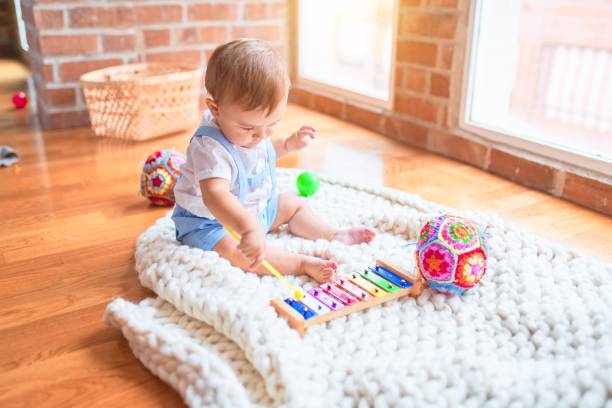These are the studies where the child is introduced to Montessori education for the first time. Daily life materials provide a comfortable transition for the child between home and school. Materials in this area are tools that the child always comes across at home. Children love to play with these tools at home and do daily chores by imitating their mothers. But in general, children are not allowed to touch these tools at home. The child, who encounters brooms or teacups and a pot of tea used in real life, prefers to deal with the real ones instead of playing with toys that are fake. What appeals to the child is that he can work with these real materials at school as much as he wants.
Daily Life studies have a special place in Montessori education. These studies are the places where the child encounters the working order for the first time. First, he learns to choose the material he will work with, to bring the material to the table, and after working properly, to collect the material and put it away. In this process, the child’s concentration, concentration, hand-eye coordination, understanding of order, self-control skills and independence perception develop.
Among the daily life department studies;
-Fine and gross motor skills: Moving table and chair, transferring, separating, stringing beads, attaching pegs, using screwdrivers etc.
-Grace and Courtesy: Saying good morning and good-bye, introducing yourself, asking permission, apologizing, asking for something your friend has, etc.
-Self-care: Such as wiping nose, washing hands, hanging coats, buttoning using clothing frames, tying ribbons, etc.
-Environmental Layout: Sweeping the floor, collecting and throwing away falling paper, rice, etc., brushing tables and chairs, etc.
-Food and beverage preparation: Eggshell peeling, slicing, apple, carrot cutting, etc. as
-Crafts: paper cutting, weaving and sewing buttons, painting with a brush, etc. There are studies such as
The exercises targeted in this area consist of all the activities that the child may encounter in his daily life. It is not only the child’s self-care activities, but also includes all his relations with living and non-living things in his immediate environment. The materials are prepared from materials suitable for the cultural characteristics of the society in which the child lives.
Daily life skills department studies in Montessori education; It enables the child to become independent and to succeed in his own work. The child enjoys doing the housework very much, and has the opportunity to develop all the organs and muscles that need to be used while doing the housework. E.g; sweeping the floor, removing legumes, dusting, opening and closing bottles, hanging laundry, folding etc. Countless housework is full of natural opportunity to support the child’s muscles and mental development that need to be developed.
In all these stages, the finger muscles and wrist work. Wrist movement is only a human trait. It has been proven that intelligence develops with the use of hands.
“Hands are organs of intelligence.”
“Man owns his environment with his hands.”
Maria Montessori
As a result of the work done with the daily life section, children;
They learn to control movement coordination, to be patient, to work with focus and sequence of events.
They learn to develop their own limits and competences; so they become aware of their productivity and their own strength.
– They make preliminary preparations for mathematics, literacy, sense and universal thinking.
-Comprehend the logical sequence of different stages of a work.
Maria Montessori, as a result of the meditation feature of her daily life studies; says that the child has developed a docile behavior and attained inner peace. The child, who completes his/her development as a result of the educator’s careful observation, develops a personality that loves work, has a sense of responsibility, can cope with problems, is not afraid of difficulties, and is at peace with himself and his environment.
